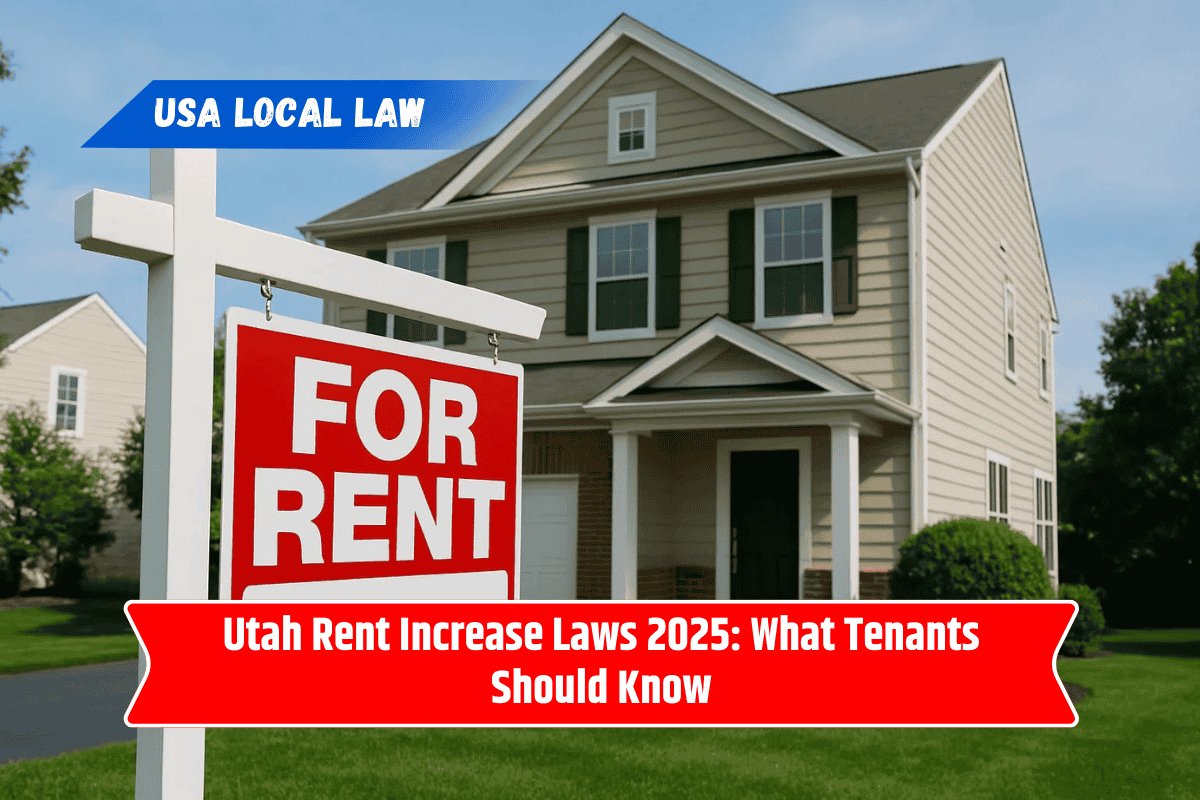In 2025, many Utah renters are seeing their monthly rents go up — and with that, questions are also rising. Can landlords raise the rent whenever they want? Is there a limit to how much they can increase it? Are there notice periods required by law?
If you’re renting a home or apartment in Utah, it’s important to understand your rights and what the new updates mean for you. This guide explains Utah’s rent increase laws in simple terms so tenants can stay informed and protected.
Is There a Limit to How Much Rent Can Be Increased in Utah?
Utah does not have rent control laws in place. That means:
There is no legal cap on how much a landlord can increase rent.
Landlords can raise the rent by any amount they choose.
This can be difficult for tenants, especially in cities like Salt Lake City, where housing demand is high and rental prices are rising fast. However, there are still rules about how and when landlords can raise the rent.
When Can Landlords Increase the Rent in Utah?
Even though landlords can raise rent by any amount, they must follow proper timing rules, depending on your rental agreement:
Month-to-month leases: Landlords must give at least 15 days’ written notice before raising the rent.
Fixed-term leases (e.g., 6 or 12 months): Landlords cannot raise the rent during the lease term, unless the lease agreement says they can. Any increase must wait until the lease ends.
So, if you have a lease until December, your landlord can’t raise the rent in October—unless your lease includes a clause allowing it.
How Must Landlords Notify Tenants About a Rent Increase?
Under Utah law, the notice must be:
In writing
Delivered at least 15 days in advance (for month-to-month tenants)
Clearly state the new rent amount and the date it takes effect
Landlords can deliver the notice by:
Handing it to the tenant directly
Mailing it to the tenant
Leaving it in a visible spot at the rental unit
Always keep a copy of any rent increase notice you receive for your records.
Can a Tenant Refuse a Rent Increase?
If you’re on a month-to-month lease, you have a few options when a rent increase is announced:
Accept the new rent and continue staying
Negotiate with your landlord for a smaller increase
Give notice and move out before the rent hike begins
If you’re on a fixed-term lease, you’re protected from rent hikes until the lease ends. At renewal, you can decide whether to accept the new rent or move out.
Are There Any Exceptions or Protections in 2025?
While Utah still doesn’t have statewide rent control, there are some things tenants should know in 2025:
Low-income housing programs (like Section 8) may have specific rent limits or rules.
Discrimination laws still apply. A landlord cannot raise rent based on a tenant’s race, religion, nationality, disability, or other protected status.
Some cities or counties may discuss adding local rental protections, but as of now, no city in Utah has rent control.
If you’re unsure whether your situation falls under a special housing program, check your lease or talk to a local tenant support group.
Tips for Tenants Facing a Rent Increase
Review your lease before agreeing to anything.
Ask for written notice if you receive a verbal rent increase.
Try to negotiate with your landlord—some may be open to compromise, especially with good tenants.
Start looking early if you plan to move. The rental market can be competitive in 2025.
Contact Utah Legal Services or a local housing authority if you feel your rights are being violated.
In Utah, rent increases are legal and mostly unregulated, which puts more responsibility on tenants to stay informed. While landlords can raise rent without limit, they must follow the correct notice rules and timelines.
By understanding your lease type and knowing your rights, you can make the best decision for your housing situation in 2025. Whether you decide to stay, move, or negotiate, knowing the law helps you stay one step ahead.
